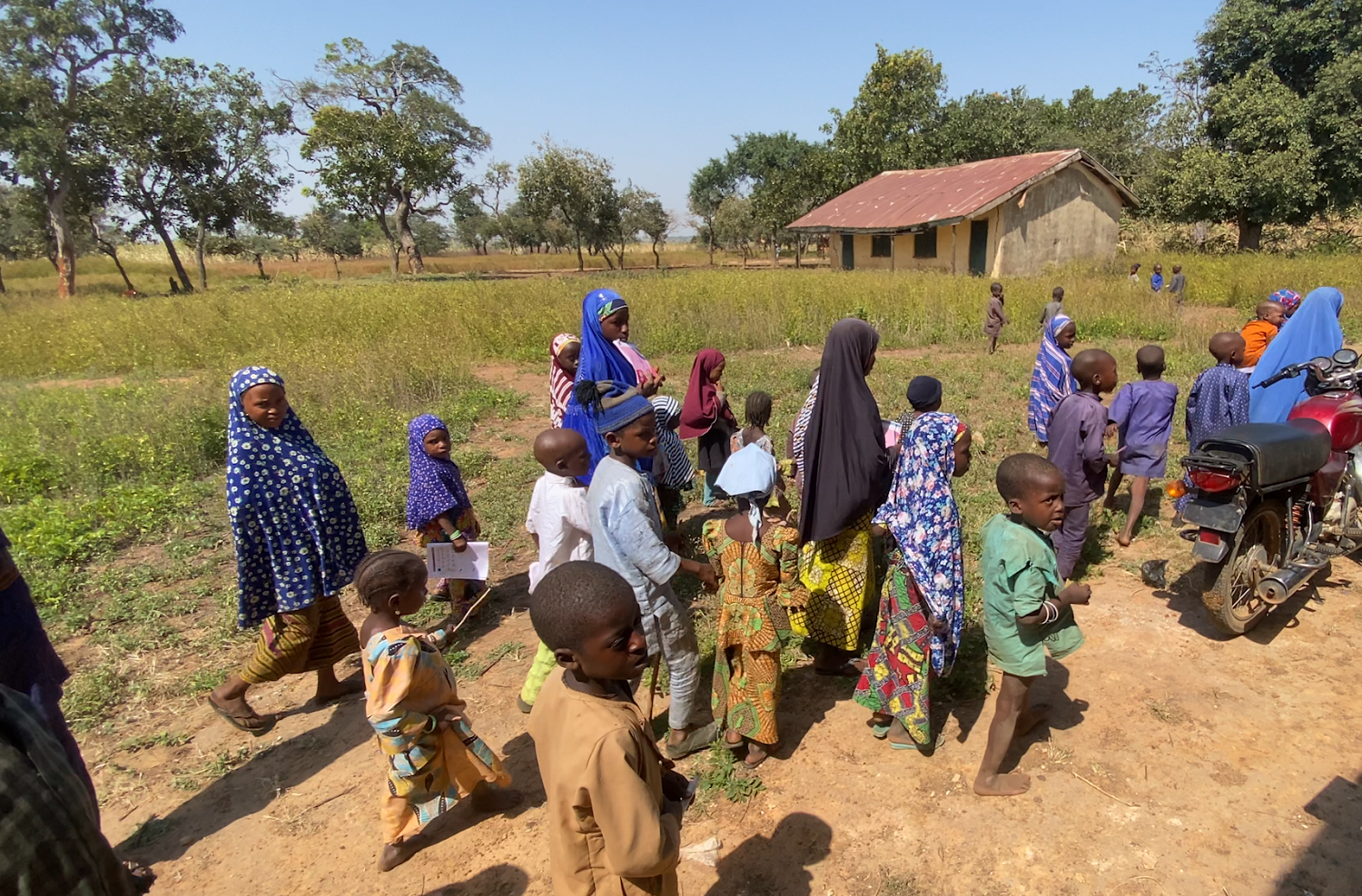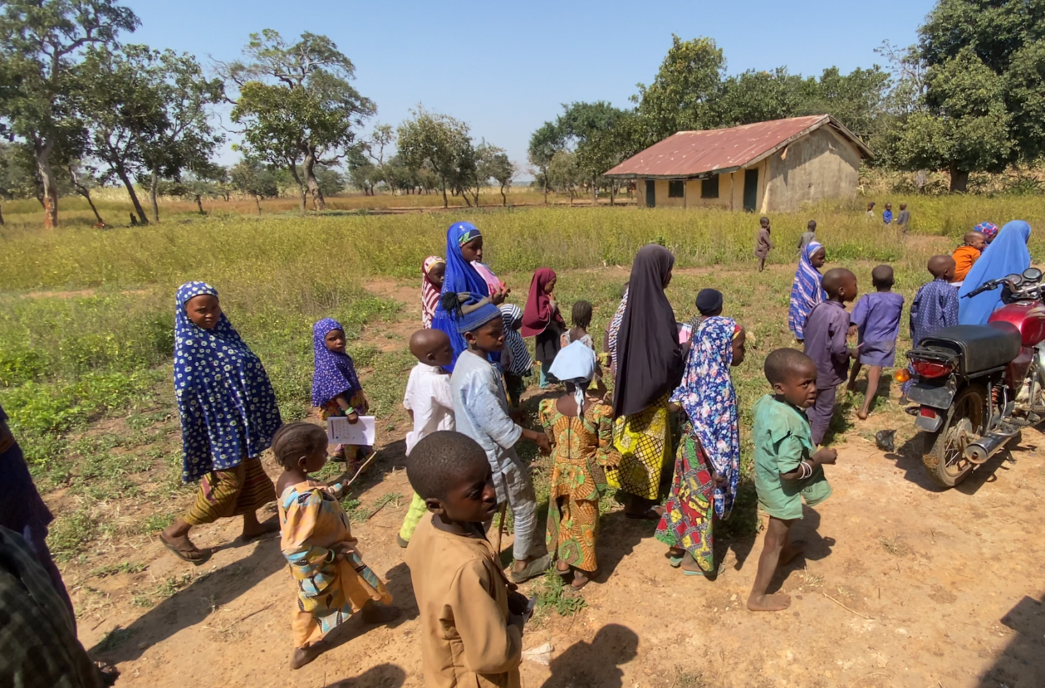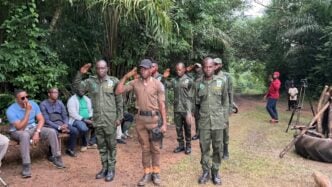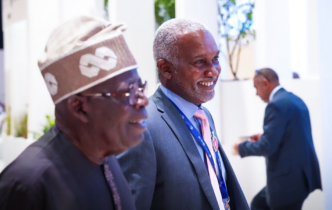Pupils at Nomadic Primary School Gidan Ardo in Galadimawa, Giwa LGA of Kaduna | Photo: Samuel Adebanjo/TheCable
The education ministry has commenced a phased national survey to guide its policy interventions for out-of-school nomads and other socially disadvantaged populations.
The six-phase survey, which had its pilot run in July 2025, extends to roaming Almajiri children in Nigeria’s six geopolitical zones.
In April 2025, TheCable published a two-part series with documentary, audio, and data components on the educational deprivation affecting nomadic children.
The story reported the basic school enrollment rate of Nigeria’s nomadic children to be at an annual average of 1.8 million, with an estimated 5 million children left to idle around in huts, among cattle, and on farms all day on the remote margins of society.
Advertisement
It demonstrated how enduring insecurity threats disrupt already struggling nomadic schools in the country’s far north, resulting in a shortage of instructors and a student-teacher ratio of 91:1 as against UNESCO’s recommended 40:1.
The report also highlighted cultural barriers, teacher attrition, infrastructure gaps, and legislation among the factors impeding basic school enrollement for nomads.
A UNESCO estimate, in 2024, said Nigeria has up to 28 million out-of-school children(OOSC) across its rural and urban centres.
Advertisement
Balarabe Shehu-Kakale, special adviser to the education minister on out-of-school children, said the survey would go beyond estimates to build actionable data as part of an elaborate plan to democratise basic education access for nomads and other populations.
Among the key partners in the survey are the National Commission for Nomadic Education, the Universal Basic Education Board, the National Identity Management Commission, and the National Bureau of Statistics.
Bashir Usman, a professor and the executive secretary of the NCNE, spoke on the sidelines of the survey’s run in Abuja.
He said the census sampled Gombe in the north-east, Jigawa in the north-west, Niger and Abuja in the north-central, Oyo in the south-west, Cross River in the south-south, and Enugu in the south-east for its pilot run.
Advertisement
“We have a work plan. The education ministry decided that we should go out there and find out how many children are really out of school, so that we can make the necessary arrangements,” the professor said.
“We will capture children from six to 15 years old so that they can return to school. This way, we can also know the number of locations there are, how many learning centres are functional, and the number of teachers required.
“We’re doing a needs assessment on youths who have finished secondary school (even junior secondary) who have dropped out or are not doing much in society. We should capture them and teach them skills.”
Working with a digital dashboard, Nigeria’s education ministry is profiling each out-of-school child and geolocating nomadic communities to determine where learning centres are needed or already available.
Advertisement
This dashboard will include the child’s identifying details, trends in their host community as they affect receptiveness to basic education, and the number of graduates in those communities who can be hired for deployment as nomadic teachers.
Nigeria’s latest policy roadmap on education, spanning 2024 to 2027, seeks to reduce OOSC rate by 15 million by the year 2027, cutting it by at least 25 percent annually.
Advertisement
It ambitiously plans to absorb 500,000 over-age OOSC each year by implementing a novel Accelerated Basic Education Programme (ABEP) which will condense six-year basic school learnings into two years.
A flexible “open school scheme”, being implemented for nomads, will offer skill-based functional education to encourage entrepreneurship and formalise traditional schooling systems.
Advertisement
Nigeria’s nomads are mostly seasonal farmers, migrant fishers, or pastoralists herding with their children in rural communities.
Data collected from the survey, Usman added, will adapt Nigeria’s current basic education roadmap to the peculiar needs of nomads.
Advertisement













